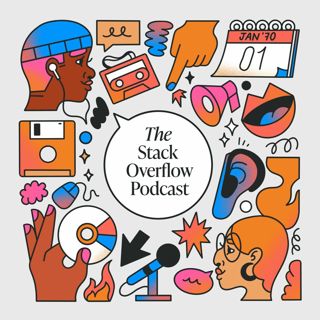
Even your voice is a data problem
Recorded last December at AWS re:Invent, Ryan welcomes CEO and co-founder of Deepgram, Scott Stephenson, for a conversation on advancing voice AI technology. They cover how Deepgram is improving speec...
13 Feb 35min

The logos, ethos, and pathos of your LLMs
Ryan is joined by Professor Tom Griffiths, the head of Princeton University’s AI Lab, to dive into findings from his new book The Laws of Thought, which explores the history of the philosophy, mathema...
10 Feb 34min

AI attention span so good it shouldn’t be legal
We have another two-for-one special this week, with two more interviews from the floor of re:Invent. First, Ryan welcomes Pathway CEO Zuzanna Stamirowska and CCO Victor Szczerba to dive into their dev...
6 Feb 30min

Generating text with diffusion (and ROI with LLMs)
Two guests for the price of one! This episode has two interviews recorded at AWS re:Invent back in December. In part 1, Ryan chats with the co-founder and CEO of Inception, Stefano Ermon, about diffus...
3 Feb 30min

Wanna see a CSS magic trick?
Ryan is joined by Chris Coyier, founder of CSS Tricks and CodePen, to talk all about what the state of the art of CSS is today, including new features like variables and scroll-driven animations. They...
30 Jan 38min

Spy vs spy at scale
Ryan welcomes Anthony Vinci, former senior intelligence officer and author of The Fourth Intelligence Revolution, to explore AI’s evolving role in intelligence in places like translation and image ana...
27 Jan 35min

AI can 10x developers...in creating tech debt
Ryan sits down with Michael Parker, VP of Engineering at TurinTech to discuss the newest kind of tech debt—AI-generated tech debt. They dive into the uneven productivity results of AI tools, how tech ...
23 Jan 29min

Don’t let your backend write checks your frontend can’t cache
Ryan welcomes Prakash Chandran, CEO and co-founder of Xano, to the show to discuss the intricate relationship between frontend and backend development, the potential challenges that universal frontend...
20 Jan 30min





















